Menu
Menu
The Space Studies Program (SSP) offers an intensive nine-week course hosted each year in the timeframe June-August in different locations around the world. It provides courses in all space disciplines, as well as hands-on education through workshops and professional visits. This program offers a unique curriculum designed specifically for professionals starting or changing direction in their space careers.
The SSP is intended for people working in space-related fields who wish to broaden their knowledge base. During the SSP, participants work on team projects to address current and future challenges in the space sector. Since 1988, the SSP program exposes participants to broad new perspectives on the world’s space activities.
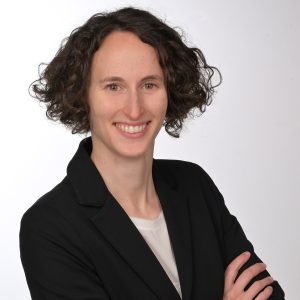
“I enrolled for ISU’s Space Studies Program 2021 in Strasbourg while changing my career from being an academic researcher to become a space propulsion engineer. The extraordinary people that I met, from young professionals to executives, contributed to my personal and professional growth. This experience boosted my career further into the NewSpace business. After SSP21, I started working as space licensing and system engineer at HyImpulse GmbH – currently working on the development of the sounding rocket and in-orbit propulsion systems.”
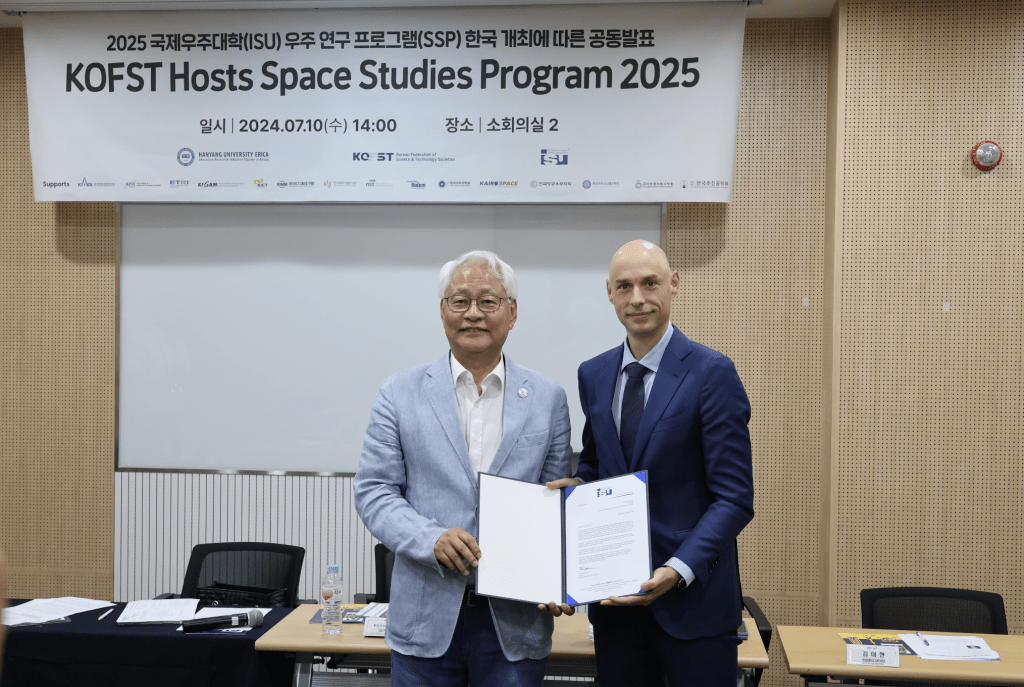






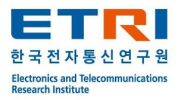






The International Space University’s 37th Space Studies Program (SSP) will be held in Greater Seoul, South Korea from 30th June to 22nd August 2025.
The program will be hosted by two partners:
ISU President Nicolas Peter remarked:
“Though ISU’s Space Studies Program has been held in Asia before — in Japan (1992), Thailand (1999), and China (2007) — it has not returned to the region in the last 15 years and has never before been hosted in South Korea.” He continued, “The recent development of South Korea with the Nuri launcher, the Danuri lunar mission and the establishment of the Korean AeroSpace Administration (KASA) showcase the amazing space capabilities in the country”.
Professor Tai Sik LEE, president of KOFST stated:
“As Korea’s largest and most established science and technology (S&T) organization, KOFST represents a network that spans 13 regional federations and 19 overseas associations. Our members include academics, scientists, engineers, and other S&T professionals, comprising 600 organizations. Our extensive domestic and international connections make us an ideal leader to spearhead and promote ISU’s Space Studies Program.”
Registrations for ISU’s Space Studies Program SSP25 in Seoul, South Korea are now open, and scholarships will be awarded on merit and financial needs.
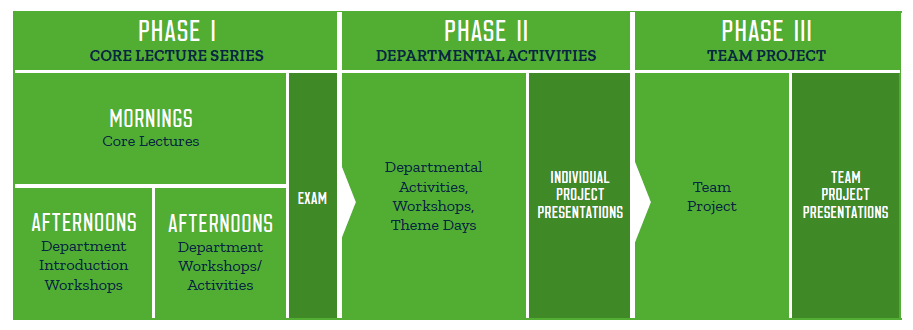
The interdisciplinary curriculum of the SSP, with its emphasis on international cooperation, exposes participants to broad new perspectives on the world’s space activities – perspectives otherwise reserved for those with many years of diverse professional experience. The program is packed with a wide variety of activities, including lectures by renowned experts, hands-on activities and projects, team work and professional visits.
Phase I of the SSP curriculum ensures participants have a basic grounding in the fundamentals of all the disciplines that are relevant to space programs — and that they understand the relationships between these disciplines in any space-related activity. All participants attend the core lecture series, which creates a basic framework of knowledge to prepare participants for informed and balanced judgment.
A series of lectures in each field of study that is designed primarily for non-experts is presented. Thus, medical specialists can understand the lectures on propulsion and engineers and lawyers can understand the lectures on the effects of weightlessness on the human body.
Core lectures are often grouped in clusters. Questions from participants and group discussions with the lecturers are encouraged.
Knowledge gained from the core lectures allows participants to:
SSP Workshops are activities designed to enhance and complement the knowledge acquired during core lectures through more active learning in smaller groups. Participants choose activities based on their interests. A number of activities are conducted in parallel and participants must sign up in advance. Topics may be offered more than once so as many people as possible are able to benefit.
Workshop activities offered in SSP19 included:
Department activities encourage exchange of knowledge, ideas and opinions through debate and discussion, as well as hands-on activities. Departments have more time to go into greater depth with activities such as:
Department activities provide an important opportunity for participants to interact with faculty members and lecturers and build their professional network. They also provide a means for participants to become sensitive to the cultural differences that govern personal interactions in a group setting and to adapt and develop presentation and negotiation skills in light of this cultural diversity.
The department chair will work with each participant to define a short exercise or project as part of the departmental activities. These projects may be done individually or in small teams and include an oral presentation of professional research or a professional paper and presentation on current issues for a conference.
During the SSP, departments make professional visits to space agencies, companies, and space-related research institutes/universities. The activity varies based on the available local resources.
Some example of SSP19 professional visits and activities are:
In Phase III of the SSP, participants work in international, interdisciplinary and intercultural teams to produce a comprehensive analysis and proposals for an international space project or on a topic of relevance to the professional space sector. Participants choose one from multiple team project topics and work on that topic for the duration of the SSP. This element of the program has three main objectives:
Many ISU reports have served as resources for the world space community (see the ISU Library Website for Team Project reports). The structure of team projects depends to some extent on their subject matter, but certain aspects are common to all team projects:
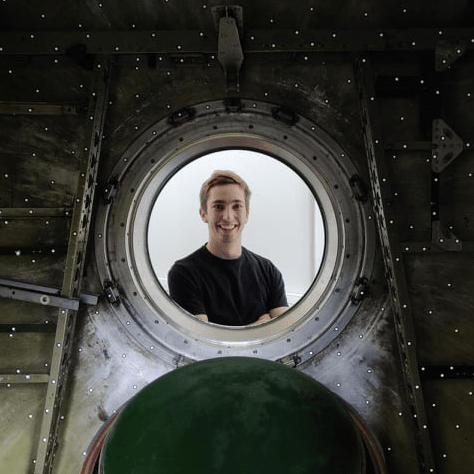
“Growing up, being involved in space was just a childhood dream of mine. Attending the ISU was one of the most rewarding experiences I’ve had the pleasure of being a part of. Learning about such a broad range of topics alongside such talented individuals was an experience second to none. I would not be exaggerating to say that almost all of the fantastic opportunities I have received since attending are in some way due to the program, and for that I will always be grateful. To anyone looking to turn their childhood ambitions into a reality, the ISU is a must.”
Applications for the Space Studies Program (SSP) 2025 will be processed in the order in which they are received. Only full applications will be considered.
Application deadlines:
31 January 2025
(for applicants requesting scholarships)
30 April 2025
(final application deadline)
Early applications are recommended. Partial scholarships for candidates in need of financial aid will be granted on a first come first served basis until they run out.
In a typical SSP about 250 lecturers and experts academia from space agencies, industry and from all over the world provide instruction to the student body.
The SSP curriculum is coordinated by the Core, Department, and Team Project chairs and supported by members of the ISU Faculty.
Click here to view a list of invited lecturers and experts for SSP21.
Applications for the Space Studies Program (SSP) are processed through a rolling deadline system. Only full applications are considered, and candidates who miss a deadline will be evaluated after the following deadline.
Early applications are recommended, and partial scholarships for candidates in need of financial aid will be granted on a first come first served basis until they run out.
Application deadlines:
31 January 2024 (for applicants requesting scholarships and applicants in need of a visa for the USA), 30 April 2024 (final application deadline)
If you are interested in the online version of the SSP, please check our Digital Education page
Each participant’s academic performance is evaluated on the basis of:
Participants are required to obtain a satisfactory evaluation in each of these three elements in order to obtain a Certificate of Completion for the program.
The full fees for SSP24 are EUR 20,000.
Payment may also be made in US dollars at the inter-bank exchange rate on the date of payment.
This fee is inclusive of tuition, accommodation, and meals. Travel to and from the SSP host site and medical insurance are not included.
Learn about the latest SSP
The International Space University (ISU) has organized the Space Studies Program (SSP) annually since 1987. The SSP is held in different countries around the world with an institution or consortium serving as its Host.
The program brings over 300 professionals representing 40+ countries for a duration of 8 weeks to the host country.
ISU is seeking proposals from interested organizations in serving as the host of the 38th, 39th, and 40th SSP which will be held in 2026, 2027, and 2028.